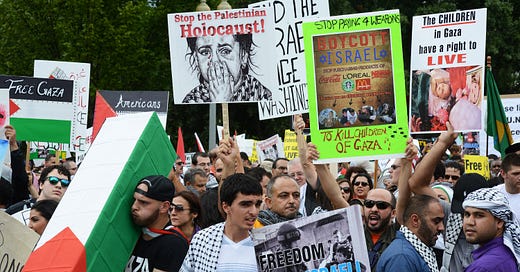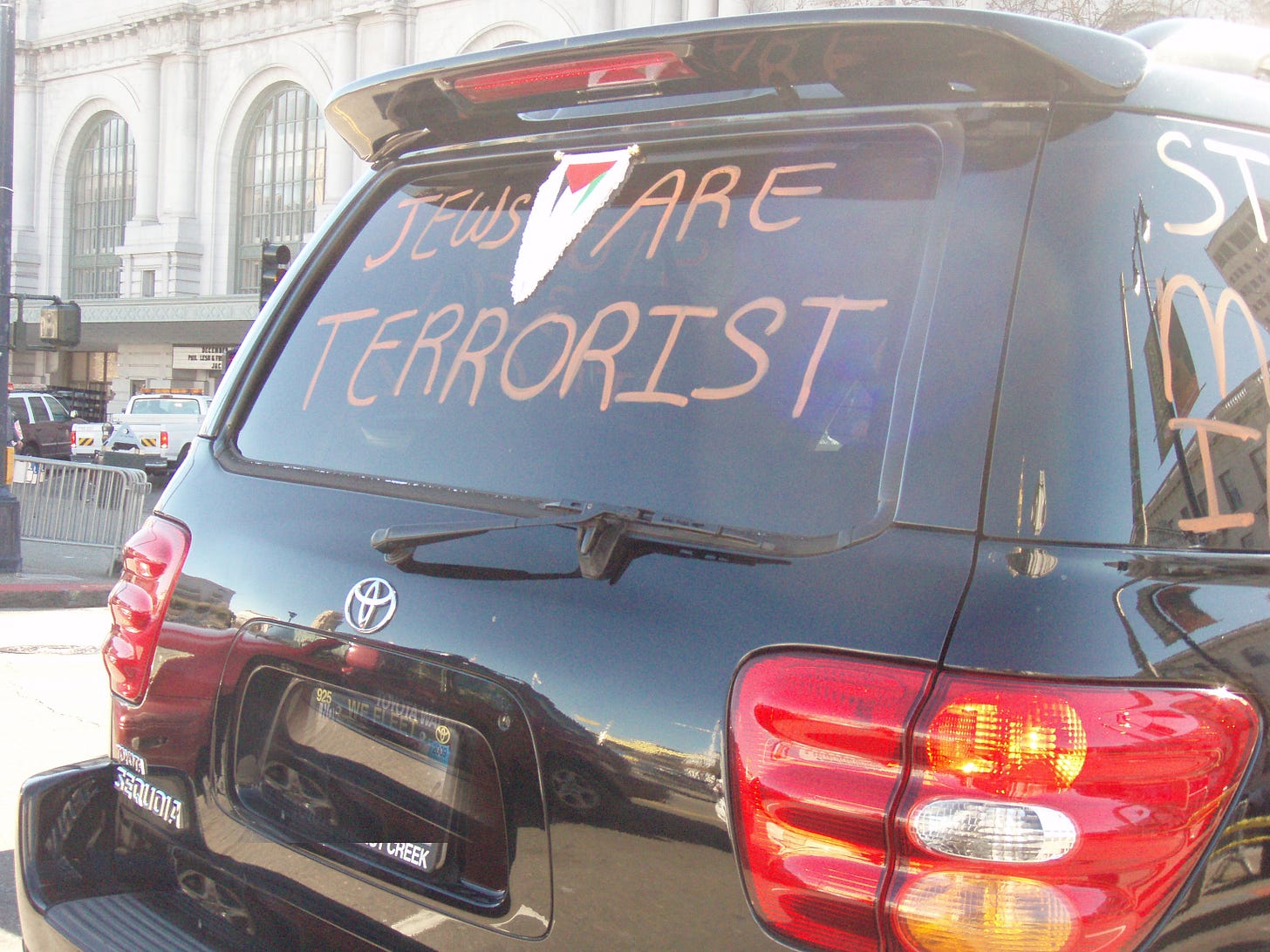A year after the storming of the Bastille in 1790, the English philosopher Edmund Burke published a pamphlet called Reflections on the Revolution in France. In it, he warned his more excitable countrymen against expecting similar scenes in Britain.
“Because half-a-dozen grasshoppers under a fern make the field ring, while thousands of great cattle, reposed beneath the shadow of the British oak, chew the cud and are silent, pray do not imagine that those who make the noise are the only inhabitants of the field,” he wrote.
Burke was evoking the strength of that body of modest yet patriotic citizens which in 1969 was given a name. In a televised address to the American people amid widespread demonstrations against the war in Vietnam, President Richard Nixon said: “And so tonight, to you, the great silent majority of my fellow Americans, I ask for your support… Let us be united for peace. Let us also be united against defeat.”
Ever since, the notion of the silent majority has been an essential part of political thinking, both during campaigns and when governing. It is all too easy – so the wisdom runs – to wrongly conclude that the views of the vocal minority actually represent those of the country. An astute politician will be able to read the centre of gravity of the people, without being distracted by the froth.
Since October 7, I have argued that the silent majority of Britons, and indeed of populations across the West, saw through the media bias and Hamas propaganda. These, I thought, were the people who felt in their bones that in a conflict between a democratic ally and jihadi butchers, there was no question where their support must lie. They were the soul of Britain. Today, I’m not so sure.
In a column for the Telegraph in December, I wrote: “Overseas, Jews are first slaughtered then scolded for defending themselves; meanwhile, their enemies hide behind babies, prepare the next atrocity and beckon the television cameras. At home, society seems divided between those who hate the Jews for fighting back and those who suspect they had it coming in the first place. The silent majority remains silent. What will it take to rouse them?”
At the time, it still felt like the public had sympathy for the Jewish state. Immediately after October 7, support for Israel had risen to 21 per cent, while just 15 per cent backed the Palestinians. But then the Hamas propaganda strategy of human sacrifice kicked in, while Israel concentrated on winning the shooting war while neglecting or fumbling the battle for hearts and minds.
By November 2, a week after the IDF invaded Gaza, public sympathies were neck-and-neck at 19 per cent. Three weeks later, Israel was behind on 18 per cent while the Palestinians hit 21 per cent. It was all downhill from there. These days, the gulf between those supporting our democratic ally and those backing their jihadi butchers is shamefully wide, with the majority skewed in favour of the latter.
The media holds a great deal of the blame for this moral confusion. Ask yourself: when did you last see footage of a dead or wounded Hamas terrorist? The answer will be never. This is because the jihadi group censors all material coming out of Gaza, creating the vivid impression that Israel is waging war on innocent civilians.
As a result, anybody who tries to argue correctly that the Jewish state is harming fewer innocent people than any other army in history gets laughed out of the room, as people feel they have seen the “evidence” on television, with their own eyes. Hamas supports this distortion by manipulating the casualty figures, telling the world that most of the dead are women and children, as if the IDF send in teams of special forces to hunt them down while leaving the men unharmed. Once again, the media reports this with only the lightest dusting of context.
When did you last hear a broadcaster informing viewers that the footage they are about to see was censored by Hamas? When did you last see journalists highlighting that its casualty figures have been widely queried, if not downright debunked, by statisticians, and should be treated with caution? It is no exaggeration to say that the media has often allowed itself to become the production wing of jihadism.
In contrast, Israel has – wrongly, in my view – severely limited access to journalists, both inside Gaza and to its leadership in Jerusalem. I was there on the ground this week, and was reluctantly shown an example of the legal procedure the IDF goes through before it approves any airstrike. International military experts alongside me, who were given less restricted access, confirmed that this represented a “gold standard” for this type of warfare. General Sir John McColl, NATO’s former deputy supreme allied commander for Europe, remarked that “their procedures are at least as rigorous as ours”. A proper communications strategy would have facts like this shouted from the rooftops, not treated as if they were classified.
Similarly, the IDF could have allowed journalists to accompany teams of combat engineers who were forced to destroy empty civilian buildings. Reporters would see with its own eyes that this was not done for the fun of it but because they were peppered with booby-traps and tunnel shafts. As things stand, however, the world is exposed to pictures of the destruction on social media without knowing why it has to be so. Consequently, when Hamas cries “genocide”, people wrongly assume that the evidence supports it.
Depressingly, as we approach the anniversary of the pogroms, I’m not so sure that the silent majority even exists, let alone if it will ever raise its voice. Given the effectiveness of the Hamas disinformation campaign and the weakness of Israel’s response, it is perhaps understandable that public opinion would be swayed on this issue. But the collapse of the silent majority is about more than its support for the Middle East’s only democracy.
In this week’s Spectator, Rod Liddle writes about a new study by the National Centre for Social Research which found that only 64 per cent of us have any sense of pride in our nation’s history, down from 86 per cent in 2013. This, according to a spokeswoman, was a consequence of a nation “redefining itself”, presumably away from the values of patriotism, unity and pride and towards their unpalatable shadows.
The study recalled a poll earlier this year which found that just 17 per cent of Britons would “willingly” fight in a war, while 30 per cent said they would do “whatever is possible to avoid fighting for my country”. These figures were bleaker among young people, of whom just 14 per cent said they would fight while 43 per cent confessed that they would shirk it. A YouGov study confirmed this, finding that a third of people of conscription age would refuse to serve outright, even if Britain was under imminent threat of invasion.
There is a common denominator between the West’s pride in its values, its willingness to defend its way of life and its support for the Jewish state. The pro-Gaza movement does not just attack Israel but Western culture itself. The Union Jack and the Stars and Stripes have been torn down or burnt during protests, war memorials have been defaced and the statue of Winston Churchill outside Parliament has required protection. Under the banner of Palestine, the mob includes those who commonly campaign on radical race, gender and climate agendas, all of which combine into a single movement that is imposing itself on the rest of us.
Polling shows that this is having a profounder effect than I had thought. The West is more divided and confused than ever, with a diminishing ability to distinguish between good values and bad ones. Our citizens are declaring that they would abandon their own country in wartime just as the four horsemen of Moscow, Beijing, Iran and Pyongyang raise their spears in the distance. As ever, first in the firing-line are the Jews.






Very discouraging but an accurate take on things.
Thank you for putting into words where my own thoughts have been tending in recent months. I think back to Spinoza’s concept of ‘Conatus’, which he uses to describe the force with which a thing strives to persist and to grow in strength. It feels like, without us even really noticing it until October 7th, the West has almost lost the will to exist, let alone defend itself.
I suppose if you were a young person who really believed all the woke propaganda you’re fed about the history of Britain and the West, maybe you think it might even be a good thing for Britain to be invaded. After all, we’re guilty of so very much – everything from the invention of slavery to making every other country in the world into a patriarchy. Maybe it would be better for everyone else if the West just accepted it had to die that the world might finally live.
So it’s almost if, as Israel struggles against the forces of Barbarism, it turns its face back to the West, asking for its support, and finds that the West isn’t really sure what to do. Israel seeks support from us by saying it defends Western values – but what does this mean when the West is no longer sure it believes in them itself? To seek to defend the West would require spiritual resources which we perhaps now lack. It’s like a slow spiritual death has struck us. The Churches empty, the high streets boarded up, collapsing birthrates.
To paraphrase Orwell, if you want a picture of the future, imagine a blue-haired non-binary feminist holding a ‘Queer Communists for Gaza’ placard stomping on your face, forever.